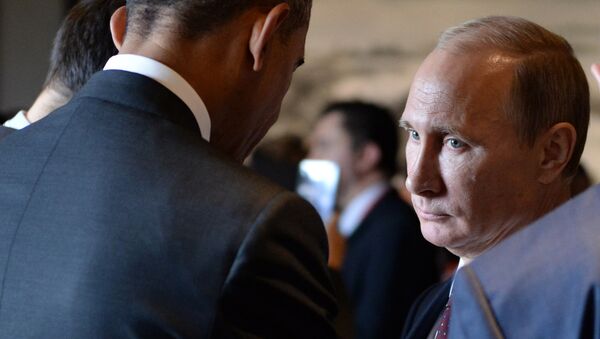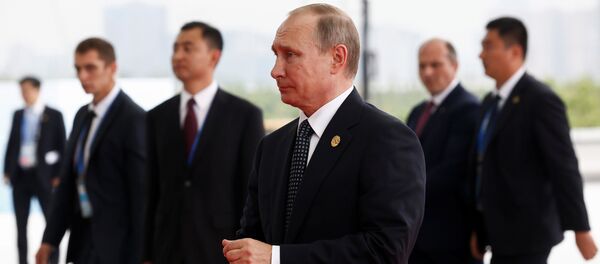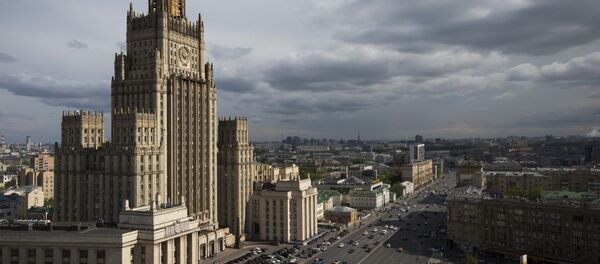As Barack Obama's term comes to an end, Stephen F. Cohen, a professor emeritus of Russian studies and politics at New York University and Princeton University, summarized three major failures in the 44th US president's policy toward Russia.
"I think this weekend will be recorded as a weekend of lots opportunities in the New Cold War and unless something dramatic happens, Obama will leave office as a terribly failed foreign policy leader," Professor Cohen said in an interview on the John Batchelor Show on September 6.
First, Barack Obama failed to reach an agreement on Syria with Russian President Putin at the G20 Summit in Hangzhou, China.
Second, the US president withdrew his own proposals to Moscow to strike a deal on no-first-use of nuclear weapons and taking nuclear warheads off high-alert status.
The American explained that the decision could have given both leaders "more than the current 14 minutes or so to determine whether or not the other side had actually launched a nuclear attack and to decide to launch a counter-nuclear attack-in effect, all-out nuclear war."
Third, Kiev has unilaterally reversed the order of the steps required by the Minsk Accords to settle the crisis in eastern Ukraine with Washington's tacit approval.
The constitutional reform is meant to recognize the necessity of decentralization of the country and to adopt "permanent legislation on the special status of certain areas of the Donetsk and Lugansk regions."
However, Ukrainian President Poroshenko claimed that returning control of Ukraine's eastern border to Kiev would be the first step of the Minsk Accords implementation.
"It is hard to imagine that Poroshenko took this step without the permission of the Obama Administration, and of Vice President Biden in particular, who has been in charge of the 'Ukrainian project' at least since 2014," Cohen emphasized.
Viktoria Panova of the Far Easter Federal University echoed the media outlet in her analysis for RIAC think tank, highlighting "special hospitality" demonstrated by Chinese President Xi Jinping toward Russian President Putin.
"At the G20 meeting, the Russian president was the most sought-after leader by other world leaders. Obama, on the other hand, seemed marginalized apart from the formal ceremonies," Professor Cohen underscored, suggesting that was caused by the fact that foreign leaders view Obama as a 'lame duck' president or do not take him seriously as a foreign-policy leader, or both.
According to the American academic, foreign leaders, including European ones, are not inclined to regard Moscow as a "threat" despite the US-led anti-Russian propaganda campaign. Cohen assumed that European powers may lift economic sanctions on Russia in January.
In light of this Washington hardly seems to be the "leader of the free world," he noted.
However, there is a chance that Obama won't leave the Oval Office as a "terribly failed foreign policy leader," due to the agreement on Syria struck by Russian Foreign Minister Lavrov and US Secretary of State Kerry in Geneva on Friday.
"Despite all the problems, despite the lack of trust, which continues to emerge, despite attempts to sabotage what we agreed upon today, we have managed to work out a package. Today's document is not the only one, there are actually five of them," Lavrov told reporters.
"The UN hopes that the implementation of this understanding will facilitate renewed efforts to reach a Syrian-owned, Syrian-led political settlement of the conflict," United Nations Special Envoy for Syria Staffan de Mistura said commenting on the agreement.
In the past three years Moscow has once again saved Obama from a loss of face. Back in September 2013 Western mass media admitted that Russia-brokered chemical weapons deal with Bashar al-Assad was a great opportunity for the American president "to save face."
Time will show whether or not Obama will capitalize on the US-Russian deal and make further steps toward a détente with Moscow at the end of his last term.




